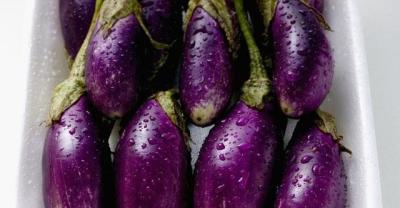Chemical fertilizer can also be used as a pesticide?
One of the biggest problems in agricultural production is the problem of diseases, insect pests and weeds. In order to control diseases, pests and weeds, pesticides are essential, and pesticides have a certain toxicity, which will have an impact on the environment and crops, so can chemical fertilizers be used as pesticides?

One of the biggest problems in agricultural production is the problem of diseases, insect pests and weeds. In order to control diseases, pests and weeds, pesticides are essential, and pesticides have a certain toxicity, which will have an impact on the environment and crops, so can chemical fertilizers be used as pesticides?
In fact, many fertilizers have the effect of killing and repelling pests, and ingenious fertilization can increase soil fertility and prevent pests. It is not only beneficial to human health, but also can prevent or reduce the resistance of diseases and insect pests, but also protect the natural enemies of pests, which can be said to kill many birds with one stone.
The following editor will introduce to you several methods of using fertilizer instead of medicine to control pests for your reference.
Phosphate fertilizer: Helicoverpa armigera is very sensitive to phosphorus during its spawning period and escapes when it encounters phosphorus. If the cotton bollworm is sprayed with 2% superphosphate solution during the spawning period, leaving 1 bed without spraying every 5-6 beds, it can drive the cotton bollworm to lay eggs centrally so that it can be wiped out.
Second, nitrogen fertilizer: urea, ammonia bicarbonate and ammonia water are volatile and have definite stimulation, corrosion and fumigation to insect pests. Using urea 25O?8OO grams, adding washing powder lOO grams, adding water 150 kg spraying wine, can control red spiders, aphids and other pests. Spraying with 1% ammonia bicarbonate solution during the occurrence period of insect pests, spraying once every 5-6 days for 2 times in succession, had obvious effect on red spiders, yellow spiders, thrips and aphids with small body and weak endurance, and the general insecticidal rate was 80%. However, the concentration must be strictly controlled in the process of use, and the concentration must not be too high and burn the crops.
Third, grass ash: that is, firewood, fallen leaves, straw, grain husk and other residual ash after combustion. It mainly contains calcium oxide and potassium carbonate, which is alkaline. Grass instead of pesticides? Ash, it is required to be dry and not damp when used. Usually use grass per mu? Grey lO?l5 kg, soaked in 5O?75 kg water, filtered after one day and night, filtered and sprayed with wine, can effectively control aphids. With grass? Grey 2O?3O kg, ditch or hole application around the roots of vegetables and fruits has a good effect on the control of vegetable root pests such as onions, garlic, leeks, melons and so on.
Lime: in the rainy season, leafy vegetable crops in vegetable fields with lower terrain and higher ground temperature are easy to be harmed by snails, so chemical control is generally difficult to be effective. After the dew is dry on a sunny day, when the air humidity is low, the sifted dry fine lime powder is scattered on the soil surface between the vegetable rows, so that when the snail climbs over the lime, the snail will stick to the powder and cause its software to dry and die without water, and the effect is remarkable. In cloudy and rainy days, lime powder is easy to form large aggregates and lose adhesion in rainy days, so it should be carried out in sunny days.
5. Green alum: farmers whose chemical name is ferrous sulfate and lack of plant ash can use 1 part of green alum with 3000 parts of clear water. after fully dissolving, watering the roots or rows of crops such as onions, garlic and leeks can effectively kill root maggots, and the control effect is more than 8%.

Silicon-calcium fertilizer: corn, soybean and other crops, apply silicon-calcium fertilizer 3040 kg per mu, can avoid corn borer, pod borer harm. The harm of armyworm can be greatly reduced by applying silicon-calcium fertilizer 20kg / mu to rice, wheat and other crops.
7. Mixed use of fertilizer and medicine: adding 50% dichlorvos EC (concentration 1%) to 1% urea solution to spray wine can kill red spiders that harm citrus, cotton and flowers. Spraying wine at the booting stage of rice with 40% dimethoate EC 50 grams per mu, urea 250 grams and water 50 kg per mu can not only control rice pests, but also promote rice yield. In the seedling and early flowering stage of soybean, 50 grams of ammonium aluminate, 50 grams of phoxim EC and 50 kilograms of water spraying wine per mu can control soybean molybdenum deficiency, aphids and pod borer.
8. Others: mix fresh rabbit, sheep and cow dung with 5 parts of water and pour them around the roots of chili, eggplant, tomato, cabbage and beans in sunny days, which can effectively drive away underground pests such as ground tiger, beetle, mole cricket and so on.
- Prev

Greenhouse vegetable planting, eggplant planting disease and insect pest atlas
Although eggplant is delicious, there are many diseases and insect pests in the growth process, such as quenching disease, bacterial wilt, cotton blight, brown stripe, gray mold and so on.
- Next

The trend of chemical fertilizer price today
Urea: many land prices are slippery this week. Trading in the urea market is weak, and prices in many places have fallen. There are not many production reduction and maintenance enterprises, and the operating rate of urea is basically maintained at more than 60%. According to the unified system.
Related
- Fuxing push coffee new agricultural production and marketing class: lack of small-scale processing plants
- Jujube rice field leisure farm deep ploughing Yilan for five years to create a space for organic food and play
- Nongyu Farm-A trial of organic papaya for brave women with advanced technology
- Four points for attention in the prevention and control of diseases and insect pests of edible fungi
- How to add nutrient solution to Edible Fungi
- Is there any good way to control edible fungus mites?
- Open Inoculation Technology of Edible Fungi
- Is there any clever way to use fertilizer for edible fungus in winter?
- What agents are used to kill the pathogens of edible fungi in the mushroom shed?
- Rapid drying of Edible Fungi

